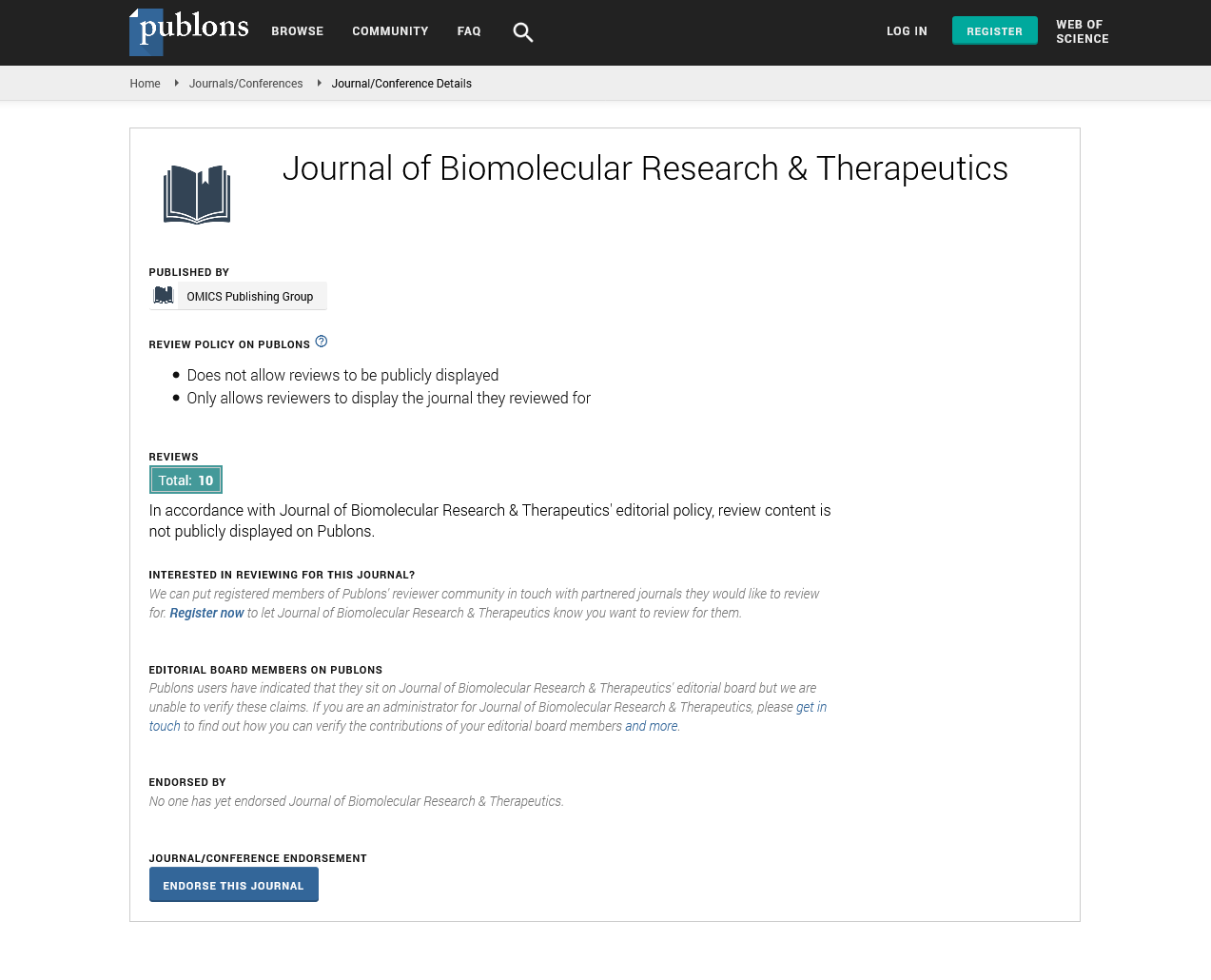Indexed In
- Open J Gate
- Genamics JournalSeek
- ResearchBible
- Electronic Journals Library
- RefSeek
- Hamdard University
- EBSCO A-Z
- OCLC- WorldCat
- SWB online catalog
- Virtual Library of Biology (vifabio)
- Publons
- Euro Pub
- Google Scholar
Useful Links
Share This Page
Journal Flyer

Open Access Journals
- Agri and Aquaculture
- Biochemistry
- Bioinformatics & Systems Biology
- Business & Management
- Chemistry
- Clinical Sciences
- Engineering
- Food & Nutrition
- General Science
- Genetics & Molecular Biology
- Immunology & Microbiology
- Medical Sciences
- Neuroscience & Psychology
- Nursing & Health Care
- Pharmaceutical Sciences
Abstract
Angiogenesis and it’s Vital Function in Healing of Wounds
Angiogenesis is the process by which new blood vessels are formed, allowing the supply of oxygen and nutrients to the tissues of the body. It is an important function required for growth, development and wound healing. However, it also plays an important role in the development of cancer because, like other parts of the body, the tumor requires a blood supply for it to thrive and grow.
Physiological angiogenesis plays a vital role during embryonic development and later, in adult life, in the female reproductive tract in the ovary and in the uterus, for a few days every month. Angiogenesis in a wound is similarly short lived, usually lives not more than 2 weeks. Therefore, two hallmarks of physiological angiogenesis are its brevity, and that many of the new capillary blood vessels either will regress or will go on to become `established` micro vessels.
Published Date: 2022-01-26; Received Date: 2021-12-28

